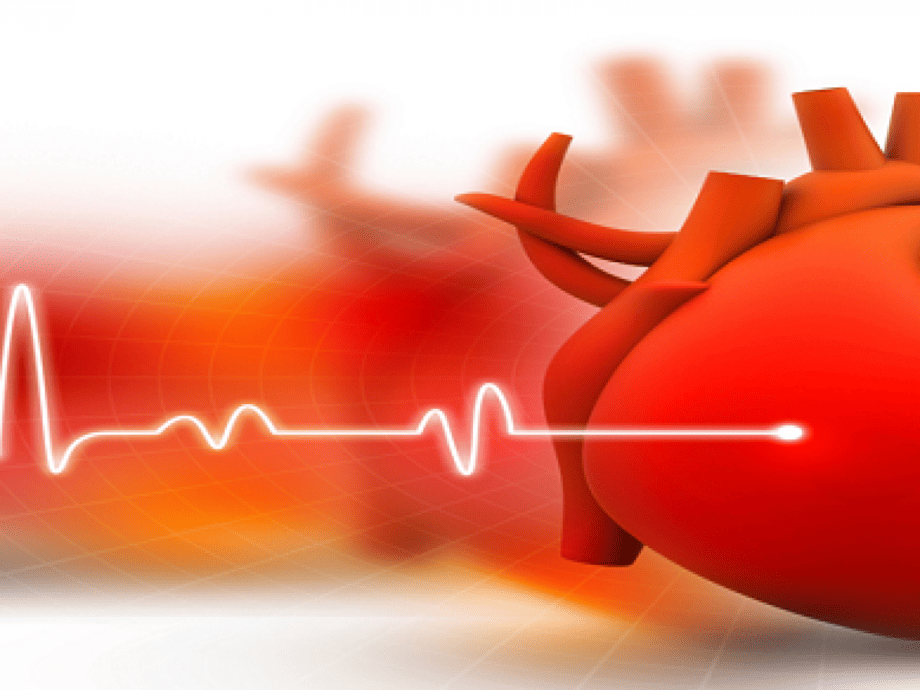What Are The Complications Of Uncontrolled Hypertension?

Hypertension, also known as high blood pressure, is a prevalent and significant health condition affecting a substantial number of individuals worldwide. Uncontrolled hypertension, characterized by persistently elevated blood pressure levels, can lead to various complications.
This article aims to provide an overview of the complications associated with uncontrolled hypertension, shedding light on the potential health risks involved. By examining the existing literature and medical research, this article will explore the potential complications of uncontrolled hypertension, including:
- Heart disease
- Stroke
- Kidney damage
- Vision problems
- Aneurysm
- Peripheral artery disease
- Erectile dysfunction
- Cognitive decline
Understanding these complications is crucial in facilitating early detection and prevention strategies, as well as informing individuals with hypertension about the potential risks they may face if their condition remains uncontrolled. By raising awareness about the complications of uncontrolled hypertension, healthcare professionals and individuals can work together to manage blood pressure effectively and mitigate the associated health risks.
Key Takeaways
- Vision problems: Uncontrolled hypertension can lead to blurred vision, loss of peripheral vision, and even complete vision loss in severe cases. Regular eye examinations and blood pressure monitoring are crucial for early detection and prevention of optic nerve damage.
- Aneurysm development: Uncontrolled hypertension increases the risk of developing an aneurysm, which is a bulge in the blood vessel wall. Aneurysm rupture can result in life-threatening bleeding. Proper hypertension management is essential to minimize the risk of aneurysm development and its complications.
- Peripheral Artery Disease (PAD): Uncontrolled hypertension is commonly associated with PAD, which is characterized by narrowing of the arteries supplying blood to the legs and feet. Complications of PAD can include leg pain, ulcers, gangrene, infections, and impaired wound healing. Effective hypertension management is crucial to prevent and minimize the complications of PAD.
- Erectile dysfunction: Uncontrolled hypertension can contribute to the development of PAD, leading to reduced blood flow to the penis and erectile dysfunction. Erectile dysfunction not only has physical implications but also psychological impacts such as frustration, low self-esteem, and depression. Treatment options for erectile dysfunction include lifestyle changes, medication, and therapy.
Heart Disease
Uncontrolled hypertension can lead to the development of various cardiovascular complications, including the onset and progression of heart disease.
Heart disease is a broad term that encompasses various conditions affecting the heart’s structure and function.
Hypertension, characterized by elevated blood pressure, places significant stress on the heart and blood vessels, leading to adverse effects on heart health.
Over time, uncontrolled hypertension can cause damage to the arteries, leading to atherosclerosis, which is the buildup of plaque and fatty deposits in the arterial walls. This can narrow the arteries, restrict blood flow, and increase the risk of heart attacks, angina, and heart failure.
Additionally, hypertension can also contribute to the development of other heart-related issues such as arrhythmias, strokes, and aneurysms.
Therefore, managing and controlling hypertension is crucial in preventing these cardiovascular complications and maintaining overall heart health.
Stroke
Stroke is a serious medical condition that can result from uncontrolled hypertension.
Individuals with uncontrolled hypertension have a higher chance of experiencing an ischemic stroke, which occurs when a blood clot blocks blood flow to the brain.
Additionally, they also face an increased risk of hemorrhagic stroke, which is caused by bleeding in the brain.
Higher Chance of Ischemic Stroke
Elevated blood pressure levels that are not properly managed can substantially increase the likelihood of a potentially life-altering event known as an ischemic stroke. Ischemic strokes occur when the blood supply to the brain is blocked, leading to the death of brain cells. Individuals with uncontrolled hypertension are at a higher risk of experiencing this type of stroke.
To prevent ischemic strokes and effectively manage hypertension, it is crucial to adhere to the following measures:
- Regularly monitoring blood pressure levels
- Adhering to prescribed medications to control blood pressure
- Adopting a healthy lifestyle, including a balanced diet and regular exercise
- Managing stress levels through relaxation techniques or counseling
By implementing these preventive measures and effectively managing hypertension, the risk of experiencing an ischemic stroke can be significantly reduced. It is essential to prioritize ischemic stroke prevention and hypertension management to safeguard against the potential complications of uncontrolled high blood pressure.
Hemorrhagic Stroke Risk
One of the potential risks associated with high blood pressure is the occurrence of a hemorrhagic stroke, which involves bleeding in the brain due to a ruptured blood vessel.
Hemorrhagic strokes account for around 10-15% of all strokes and are more likely to result in death or disability compared to ischemic strokes.
Uncontrolled hypertension puts individuals at a higher risk of experiencing a hemorrhagic stroke.
Managing high blood pressure is crucial in preventing the occurrence of hemorrhagic strokes.
Maintaining a healthy lifestyle, including regular exercise, a balanced diet, and avoiding smoking and excessive alcohol consumption, can significantly reduce the risk of hemorrhagic strokes.
Additionally, adherence to prescribed antihypertensive medications and regular check-ups with healthcare professionals are essential in managing high blood pressure and preventing complications such as hemorrhagic strokes.
Kidney Damage
Kidney damage is a common complication of uncontrolled hypertension, leading to impaired kidney function and potentially progressing to end-stage renal disease. Persistent high blood pressure can cause damage to the blood vessels in the kidneys, impairing their ability to filter waste and excess fluid from the body. Over time, this can result in a decline in kidney function and the development of renal complications. Individuals with uncontrolled hypertension are at a higher risk of developing conditions such as chronic kidney disease, kidney failure, and the need for dialysis or kidney transplantation. It is important to manage blood pressure levels effectively to reduce the risk of kidney damage and its associated complications. Regular monitoring and control of blood pressure through lifestyle modifications and medication can help preserve kidney function and prevent the progression of renal disease.
| Complication | Description | Emotional Response |
|---|---|---|
| Chronic Kidney Disease | A long-term condition where the kidneys lose their ability to function properly | Concern, fear |
| Kidney Failure | The complete loss of kidney function | Anxiety, distress |
| Dialysis | A medical procedure to remove waste products and excess fluids from the body | Dependency, burden |
| Kidney Transplantation | Surgical transplantation of a healthy kidney into a patient with kidney failure | Hope, relief |
| Impaired Kidney Function | Reduced ability of the kidneys to filter waste and excess fluid | Worry, uncertainty |
Vision Problems
This paragraph introduces a discussion on the subtopic of vision problems related to uncontrolled hypertension, specifically focusing on hypertensive retinopathy and damage to the optic nerve.
Hypertensive retinopathy refers to the damage caused to the blood vessels in the retina due to high blood pressure, which can lead to visual disturbances and potential vision loss.
Damage to the optic nerve, which is responsible for transmitting visual information from the eye to the brain, can also occur as a result of uncontrolled hypertension and may result in permanent vision impairment.
Hypertensive Retinopathy
Hypertensive retinopathy is a potential complication of uncontrolled hypertension that can lead to visual impairment and even blindness. It occurs due to damage to the blood vessels in the retina, the light-sensitive tissue at the back of the eye.
The condition is characterized by various ocular complications, including:
- Retinal hemorrhages: Elevated blood pressure causes the delicate blood vessels in the retina to rupture, leading to bleeding. This can result in small dot-like hemorrhages or larger blot-like hemorrhages, impairing vision.
- Optic disc swelling: Increased pressure within the blood vessels can cause swelling of the optic disc, the area where the optic nerve enters the eye. This can lead to blurry vision and even loss of vision if left untreated.
- Cotton wool spots: These are areas of infarction in the retina caused by impaired blood flow. They appear as fluffy white patches and can affect visual acuity.
It is crucial to control hypertension to prevent the development and progression of hypertensive retinopathy and its associated complications. Regular eye examinations are recommended for individuals with uncontrolled hypertension to detect and manage any ocular issues promptly.
Damage to the Optic Nerve
Damage to the optic nerve, a crucial structure responsible for transmitting visual information from the retina to the brain, can result from uncontrolled high blood pressure. Optic nerve damage is a serious complication of uncontrolled hypertension, and it can lead to vision problems.
When blood pressure remains elevated for an extended period, the delicate blood vessels supplying the optic nerve can become damaged. This can result in reduced blood flow to the nerve, leading to ischemia and subsequent nerve cell death.
As a consequence, patients may experience a variety of vision problems, including blurred vision, loss of peripheral vision, and even complete vision loss in severe cases. Timely management and control of hypertension are crucial in preventing optic nerve damage and preserving visual function.
Regular eye examinations and blood pressure monitoring are essential for individuals with hypertension to detect any early signs of optic nerve involvement.
Aneurysm
One potential consequence of uncontrolled hypertension is the development of an aneurysm, a bulge in the wall of a blood vessel that can lead to serious health complications. Aneurysm rupture is a significant concern, as it can result in life-threatening bleeding. The risk of rupture increases with the size of the aneurysm, and individuals with uncontrolled hypertension are at a higher risk.
Treatment options for aneurysms aim to prevent rupture and manage symptoms. These options include:
- Monitoring: Regular monitoring of aneurysm size through imaging tests allows healthcare professionals to assess the risk of rupture and determine the need for intervention.
- Medications: Certain medications, such as beta-blockers and calcium channel blockers, can help lower blood pressure and reduce the risk of aneurysm rupture.
- Surgical intervention: In some cases, surgical procedures like clipping or coiling may be necessary to repair the aneurysm and prevent rupture.
Proper management of hypertension is crucial to minimize the risk of developing an aneurysm and its potential complications.
Peripheral Artery Disease
Peripheral Artery Disease, a condition characterized by narrowing of the arteries that supply blood to the legs and feet, can lead to decreased blood flow, pain, and impaired mobility. It is commonly associated with uncontrolled hypertension. The reduced blood flow to the lower extremities can result in symptoms such as leg pain, cramping, and ulcers. Additionally, peripheral artery disease can also affect the blood vessels supplying the pelvic region, leading to erectile dysfunction in men. This complication can further impact the quality of life and psychological well-being of affected individuals.
To provide a comprehensive overview, the following table presents additional complications of peripheral artery disease:
| Complications | Description |
|---|---|
| Non-healing ulcers | Open sores on the legs or feet that do not heal properly |
| Gangrene | Tissue death due to insufficient blood supply |
| Infections | Increased risk of infections in the affected limbs |
| Limb amputation | Severe cases may necessitate surgical removal of the affected limb |
| Impaired wound healing | Delayed healing of wounds, leading to complications and prolonged recovery |
In summary, uncontrolled hypertension can contribute to peripheral artery disease, which in turn can result in various complications affecting both mobility and sexual function.
Erectile Dysfunction
Erectile dysfunction, a condition characterized by the inability to achieve or maintain an erection sufficient for sexual intercourse, can significantly impact the intimate relationships and overall well-being of individuals affected by peripheral artery disease.
When left uncontrolled, hypertension can contribute to the development of peripheral artery disease, a condition characterized by narrowed or blocked blood vessels in the legs. Peripheral artery disease can lead to reduced blood flow to the penis, resulting in erectile dysfunction.
The psychological impact of erectile dysfunction can be profound, causing feelings of frustration, low self-esteem, and depression.
Treatment options for erectile dysfunction include lifestyle changes, such as quitting smoking and maintaining a healthy weight, as well as medication and therapy.
Addressing erectile dysfunction in individuals with peripheral artery disease is crucial to improve their quality of life and maintain healthy intimate relationships.
Cognitive Decline
Cognitive decline, a common condition associated with aging, can have a significant impact on an individual’s cognitive abilities and overall functioning.
Uncontrolled hypertension has been linked to an increased risk of cognitive decline and memory loss. The brain relies on a consistent blood flow to function properly, and high blood pressure can damage blood vessels in the brain, leading to reduced blood flow and oxygen levels. This can result in the impairment of cognitive functions such as attention, memory, and problem-solving abilities.
Additionally, hypertension is a risk factor for cerebrovascular disease, which further contributes to cognitive decline.
It is crucial to manage hypertension effectively to minimize the risk of cognitive decline and preserve brain function. Regular monitoring and control of blood pressure levels, along with a healthy lifestyle, can help mitigate the potential complications of uncontrolled hypertension on cognitive functioning.
Frequently Asked Questions
How can uncontrolled hypertension lead to heart disease?
Uncontrolled hypertension can lead to heart disease by causing damage to the arteries, increasing the workload on the heart, and promoting the development of atherosclerosis. Effective blood pressure management is crucial for maintaining heart health.
What are the symptoms of a stroke caused by uncontrolled hypertension?
Symptoms of a stroke caused by uncontrolled hypertension include sudden numbness or weakness in the face, arm, or leg, difficulty speaking or understanding speech, severe headache, dizziness, and loss of balance or coordination.
Can uncontrolled hypertension cause permanent kidney damage?
Uncontrolled hypertension can lead to permanent kidney damage as one of its complications. The elevated blood pressure can damage the blood vessels in the kidneys, impairing their ability to filter waste products and maintain fluid balance, ultimately leading to kidney dysfunction.
Are there specific vision problems associated with uncontrolled hypertension?
Uncontrolled hypertension can lead to various eye complications and vision problems. These include hypertensive retinopathy, which can cause damage to the blood vessels in the retina, and hypertensive optic neuropathy, which can result in optic nerve damage and loss of vision.
How does uncontrolled hypertension increase the risk of developing an aneurysm?
Uncontrolled hypertension increases the risk of developing an aneurysm by causing damage to the walls of blood vessels, leading to weakening and bulging. This can result in a rupture, leading to potentially life-threatening complications.








